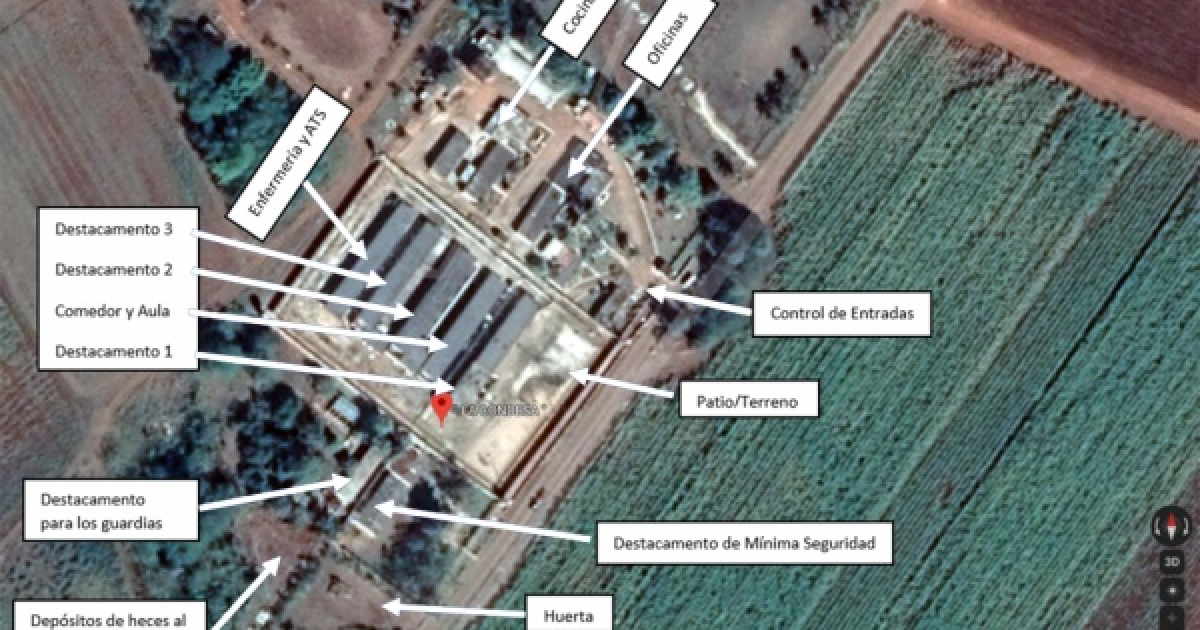
Vídeos relacionados:
Canadian citizens held in La Condesa prison for foreigners in Cuba are being harassed by the prison authorities, after exposing the living conditions of the place, according to the prisoners and their families.
In the article A cry for help from Canadians imprisoned in La Condesa in Cuba, published by CiberCuba, inmates denounced irregularities in the judicial process, excessive sentences, as well as poor food and hygiene conditions in the penitentiary center located in the province of Mayabeque, a few miles from Havana.
Lo más leído hoy:
They also stated that they have been denied medical care and are asking the Canadian government to act on the matter so that they are transferred to a prison in their home country.
Benjamin Tomlin, one of the prisoners, was notified of the denial of his transfer to Canada by Cuban authorities after the article by CiberCuba came out. Tomlin believes that "they are taking revenge for speaking out and are trying to intimidate, that’s what they do", and recalls that in 2019 his appeal request had been denied two hours after the Canadian media published his story:
"I have been punished for speaking out about the cruel and inhumane and unjust treatment that myself and other Canadians are receiving", said Benjamin and added that, with this measure, the government of Cuba has turned him, from a common prisoner, into a political prisoner. At the same time, he acknowledges that "wonderful and well intentioned people" advise him and his colleagues at La Condesa to keep quiet because they fear reprisals, and pleads not to “give in to fear”.
The inmates that appear in the CiberCuba report were separated just hours after it was published and sent to a different section of La Condesa. Family members even said that some were questioned by the authorities about the statements quoted by this media website.
Nabeel Stephan, Vimalanathan Nadesu, Sangeeth Sundaralingam, Radu Martin, Benjamin Tomlin and Simarjeet Buttar maintain their innocence. In light of the reprisals that the prisoners claimed to have suffered, there are two fundamental reasons for denouncing the situation, according to their standpoint: the Cuban government “cannot simply arrest people, take their money ... destroy lives and families".
Therefore, despite the consequences of speaking out, they think that "if people know what is happening here, it will be more difficult for them to do it to others".
At the same time, they denounce power outages and that the authorities continue to deny them medical assistance. Both the prisoners and the relatives with whom CiberCuba has had contact, see politically motivated intentions behind the new regimes that have been imposed on them by the prison authorities, which they consider reprisals for "exercising the right to freedom of expression", said one of them.
Also, all the Canadian prisoners in La Condesa have been offered an injection in the buttocks, and those who have received it have experienced extreme fatigue and drowsiness, which is why some find it suspicious and others have refused to get it, according to Nadesu's daughter.
Nadesu states he had not received his medication to treat his diabetes, and complained about this with a consultant in the prison who then offered him the injection.
The United Nations resolutions on the human rights of those living in deprivation of liberty are clear: "All prisoners and detainees have the right to the highest possible degree of physical and mental health."
Similarly, article 25 of the Universal Declaration of Human Rights guarantees to all persons, including prisoners, “The right to an adequate standard of living that ensures… health and well-being,… medical assistance and necessary social services”. This same right is acknowledged in article 12 of the International Covenant on Economic, Social and Cultural Rights, as well as in the Principles and Basic Rules for the treatment of inmates.
On February 11, in response to an email sent by CiberCuba regarding the denial of transfer to Benjamin Tomlin, a Canadian government spokesperson expressed the intention to look into such claim and to provide an answer to CiberCuba. Seven hours later, the official declined to disclose any further details, citing privacy restrictions.
“Global Affairs Canada is aware of the arrest of a Canadian citizen in Cuba. Consular officers provide assistance to the individual and their family. Due to the provisions of the Privacy Act, no further information can be provided”, said the Canadian Foreign Ministry official.
Four days later, on February 15, Canada launched an initiative signed by 58 nations to prevent countries from detaining foreign nationals for diplomatic leverage. "Taking people away from their families and using them as a bargaining chip is both illegal and immoral", said Canadian Foreign Minister Marc Garneau, whose signature was seconded by 27 European nations, Japan and United States, among others.
Although the initiative is not directed at any specific country, Garneau added that it has been designed to "increase diplomatic pressure on countries that detain foreigners, as well as others who might want to do so".
Several Canadian businessmen have been taken into custody by the Cuban government, some of which are high-profile names, including Sarkis Yacoubian, Cy Tokmakjian, Claudio Vetere and Marco Puche. The Cuban authorities have confiscated their assets and imposed several years in prison upon them. Benjamin Tomlin himself was, at the time of his arrest, an employee of the Canadian Investment Development Corporation.
Archivado en: